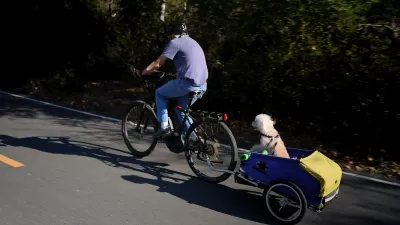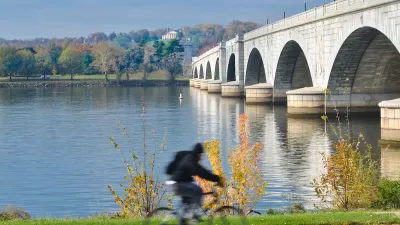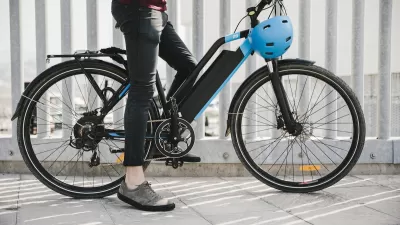The e-bike rebate program, first funded in 2021, is still a failure to launch.

California’s beleaguered e-bike incentive program is still not off the ground, writes Melanie Curry in Streetsblog California.
Curry notes that 77 vouchers have been distributed through a “soft launch,” but information about the program remains vague. According to Curry, “There is no information online about where the soft launch is happening or how people are finding out about it or which organizations are handling outreach. CARB staff have been very slow to respond to questions, and their answers have been vague and incomplete.”
Outlining the history of the program, the article highlights management and administration challenges that have delayed the program’s start. “CARB expects to give out on the order of 15,000 incentives from the initial allocation and, as far as anyone knows, still plans to do this via multiple application windows, into 2025.” The program has at least 20,000 interested parties, signaling that the rebates will likely run out quickly.
Curry concludes, “The biggest problem with this failure to launch is that even the total amount of money available is but a drop in the bucket. It will not structurally improve the affordability of e-bikes or create a huge mode shift, even if CARB were more dedicated to seeing it happen quickly.”
FULL STORY: What the Heck Is Going on with the State E-bike Incentive Program?

Planetizen Federal Action Tracker
A weekly monitor of how Trump’s orders and actions are impacting planners and planning in America.

Maui's Vacation Rental Debate Turns Ugly
Verbal attacks, misinformation campaigns and fistfights plague a high-stakes debate to convert thousands of vacation rentals into long-term housing.

San Francisco Suspends Traffic Calming Amidst Record Deaths
Citing “a challenging fiscal landscape,” the city will cease the program on the heels of 42 traffic deaths, including 24 pedestrians.

Amtrak Rolls Out New Orleans to Alabama “Mardi Gras” Train
The new service will operate morning and evening departures between Mobile and New Orleans.

The Subversive Car-Free Guide to Trump's Great American Road Trip
Car-free ways to access Chicagoland’s best tourist attractions.

San Antonio and Austin are Fusing Into one Massive Megaregion
The region spanning the two central Texas cities is growing fast, posing challenges for local infrastructure and water supplies.
Urban Design for Planners 1: Software Tools
This six-course series explores essential urban design concepts using open source software and equips planners with the tools they need to participate fully in the urban design process.
Planning for Universal Design
Learn the tools for implementing Universal Design in planning regulations.
Heyer Gruel & Associates PA
JM Goldson LLC
Custer County Colorado
City of Camden Redevelopment Agency
City of Astoria
Transportation Research & Education Center (TREC) at Portland State University
Jefferson Parish Government
Camden Redevelopment Agency
City of Claremont





























